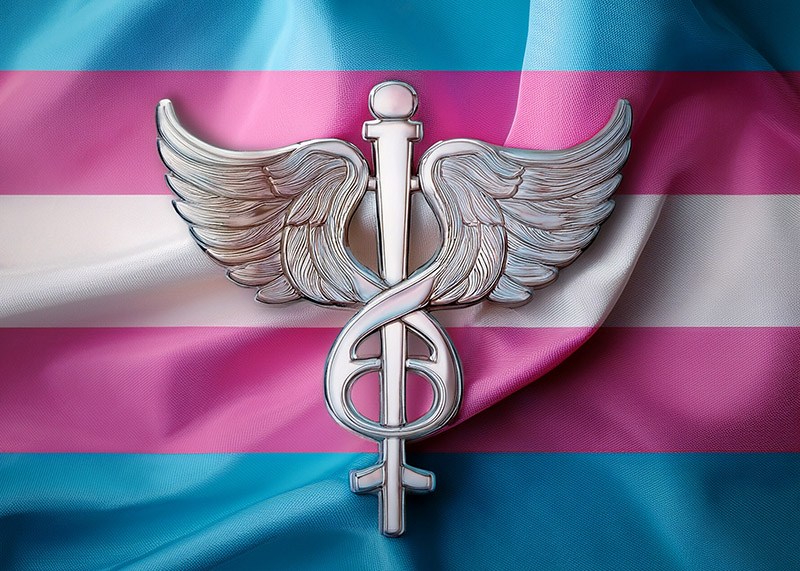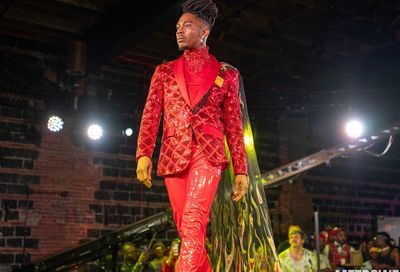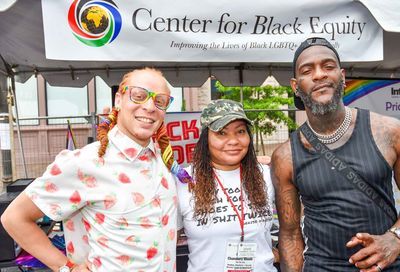Supreme Court Blocks West Virginia from Enforcing Trans Sports Ban
High court refuses to grant emergency request to allow West Virginia to enforce its ban on transgender athletes in female sports.

The U.S. Supreme Court has denied a request from the state of West Virginia seeking to move forward with its plans to ban transgender athletes from competing on female-designated sports teams.
In an unsigned order, the court denied West Virginia Attorney General Patrick Morrisey’s request to let the state enforce the law, which Republican Gov. Jim Justice signed into law in 2021.
However, Justices Samuel Alito and Clarence Thomas dissented, saying they would have granted Morrisey’s request.
A federal judge previously blocked the law from taking effect while a lawsuit challenging the constitutionality of the ban proceeds.
The plaintiff in the case, 12-year-old Becky Pepper-Jackson, is a transgender girl who tried to join her middle school girls’ cross-country team, but was informed that she would be barred from the team due to the law prohibiting transgender athletes from competing in female-designated sports.
Pepper-Jackson sued state officials, her local school board, the West Virginia Board of Education, and the West Virginia Secondary School Activities Commission, arguing that the law is unconstitutional and discriminatory.
In July 2021, U.S. District Court Judge Joseph Goodwin, of the Southern District of West Virginia, issued an injunction blocking the law from taking effect on the grounds that Pepper-Jackson was likely to prevail in her claim that the law is discriminatory.
Six months later, Goodwin rejected Pepper-Jackson’s claim that the law violates Title IX, the federal law prohibiting sex-based discrimination, finding the ban constitutional and asserting that the state had a legitimate interest in ensuring cisgender female athletes are not disadvantaged by having to compete against athletes assigned male at birth. Goodwin’s order was halted by the 4th U.S. Circuit Court of Appeals a month later, preventing the state from enforcing the ban while the lawsuit is being litigated.
Proponents of the ban, including Morrisey, on behalf of the state, filed an emergency request with the Supreme Court demanding the high court overturn the 4th Circuit’s decision. On Thursday, the high court rejected that request, allowing the appeals court decision to stand.
As Justice Alito noted in his dissent, the case is all but certain to end up back before the high court at some point in the next few years, at which point the Supreme Court will determine whether the ban on transgender participation violates either Title IX or the Equal Protection Clause of the Fourteenth Amendment to the U.S. Constitution. He and Thomas argued that the state should not be prevented from enforcing the law, which remains on the books, without a justifiable reason.
According to CNN Supreme Court analyst Steve Vladeck, a professor at the University of Texas School of Law, the decision by the remaining seven justices was not necessarily a signal that a majority of the court would ultimately side with Pepper-Jackson, but had to do with procedural issues.
“[T]oday’s ruling is likely less a harbinger of how the Court will eventually deal with state laws restricting transgender athletes’ participation on public school sports teams, and more a reflection of a divide among the conservatives justices about when those procedural issues should — and shouldn’t — matter,” Vladeck said.
As the case has worked its way through the courts, Pepper-Jackson has been able to compete for her middle school’s cross-country and track-and-field teams, and will continue to be able to do so until a higher court sides with Goodwin and allows the state to enforce the ban.
Lawyers for Pepper-Jackson claimed in recent court filings that the state is “not aware of any transgender student seeking to play school sports in West Virginia,” except for their client.
Pepper-Jackson’s legal team celebrated the decision following the Supreme Court’s denial of the emergency request.
“We are grateful that the Supreme Court today acknowledged that there was no emergency and that Becky should be allowed to continue to participate with her teammates on her middle school track team, which she has been doing without incident for three-going-on-four seasons,” lawyers from the American Civil Liberties Union, the ACLU of West Virginia, and Lambda Legal, all of which are representing Pepper-Jackson, said in a statement. “This was a baseless and cruel effort to keep Becky from where she belongs — playing alongside her peers as a teammate and as a friend.”
Morrisey called the court’s decision a “procedural setback,” but expressed confidence that the state would ultimately prevail in convincing the court to allow the trans athlete ban to remain in place.
“We maintain our stance that this is a common sense law — we have a very strong case,” he said. “It’s just basic fairness and common sense to not have biological males play in women’s sports.”
Alliance Defending Freedom Senior Counsel Christiana Kiefer expressed disappointment in the high court’s decision, but noted that the case was far from being permanently decided.
“While we hoped the Supreme Court would lift the injunction that the 4th Circuit imposed — with no explanation — on West Virginia’s women’s sports law, we remain committed to protecting female athletes by continuing to litigate this case in the court of appeals, and across the country through other lawsuits defending women’s sports,” Kiefer said.
West Virginia is among 20 states that have passed laws restricting transgender K-12 and collegiate athletes from competing, either by preventing all transgender individuals from competing on sports teams that align with their gender identity, or by preventing transgender girls and women specifically from competing in female-designated sports. According to the Movement Advancement Project, three of those bans — in West Virginia, Idaho, and Utah — have been blocked by federal judges but have not yet been resolved. A similar court order permanently blocked Montana’s transgender athlete ban as it applies to collegiate-level competitors, but kept a ban for athletes in grades K-12 in place.
Support Metro Weekly’s Journalism
These are challenging times for news organizations. And yet it’s crucial we stay active and provide vital resources and information to both our local readers and the world. So won’t you please take a moment and consider supporting Metro Weekly with a membership? For as little as $5 a month, you can help ensure Metro Weekly magazine and MetroWeekly.com remain free, viable resources as we provide the best, most diverse, culturally-resonant LGBTQ coverage in both the D.C. region and around the world. Memberships come with exclusive perks and discounts, your own personal digital delivery of each week’s magazine (and an archive), access to our Member's Lounge when it launches this fall, and exclusive members-only items like Metro Weekly Membership Mugs and Tote Bags! Check out all our membership levels here and please join us today!


























You must be logged in to post a comment.